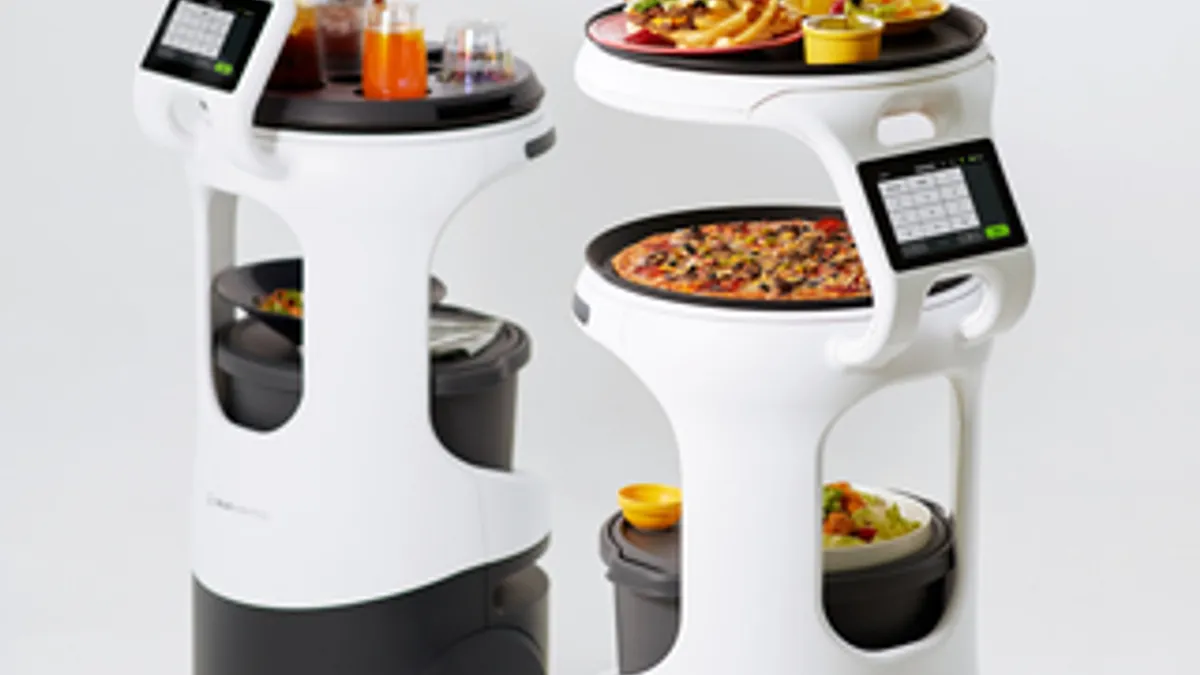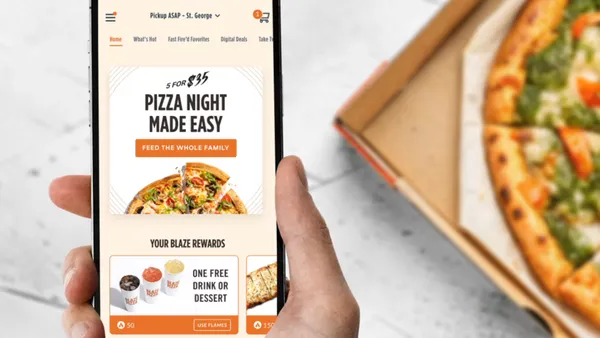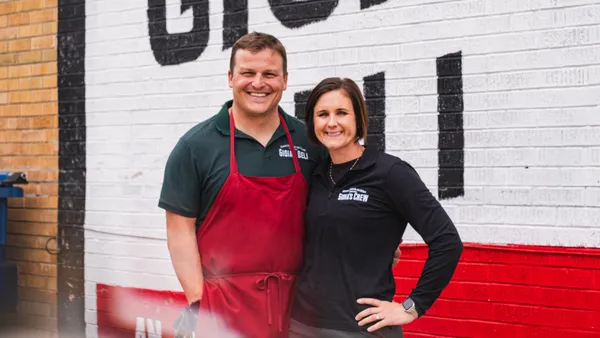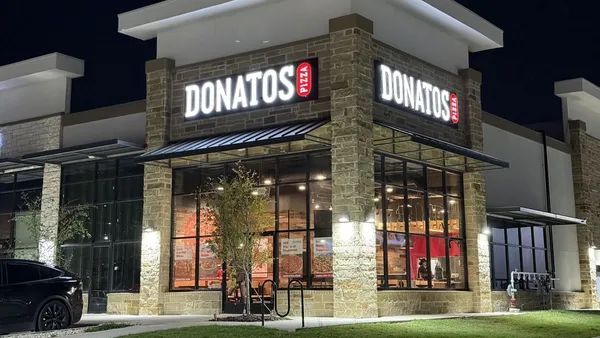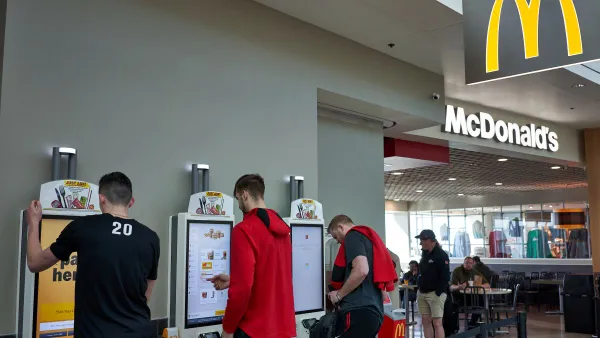Dive Brief:
- Bear Robotics, parent company of robotics solution Servi, has raised $81 million, bringing the company’s total funding to $117 million, according to a press release. The company also secured a $32 million funding round in 2020, led by SoftBank, to develop robots that bus tables and deliver food and drinks.
- The company will use the new round of funding to add products focused on automating tasks in the hospitality space. It will also grow its team and its footprint around the world.
- Since Bear Robotics' founding in 2017, it has placed an increasing number of its Servi robots in retirement homes, sports arenas, casinos and hotels. The company, however, has seen an uptick in restaurant interest during the pandemic, deploying in a handful of Chili’s and Denny’s recently.
Dive Insight:
Bear Robotics’ late 2021 deployment to 10 Chili’s restaurants was perhaps its biggest win yet, extending the concept from independents and smaller venues into a chain with potential for a much broader rollout. A handful of Denny's locations in Pennsylvania and Virginia have also recently started using its robots. This funding round could position the company well for faster expansion into the restaurant space.
The tight labor market and technological evolution of automated robotics are likely to work in the company’s favor for broader adoption and acceptance. Though the labor market improved a bit in February, the restaurant industry at large remains about 800,000 positions short of pre-pandemic numbers, according to the Bureau of Labor Statistics. There’s also the allure of contactless service, which became a consumer expectation during COVID-19.
These are likely factors why the autonomous robotics space is attracting more attention and investors. Since the end of January, delivery bot firm Starship Technologies has raised $100 million. Serve Robotics closed out a $13 million funding round in December, and Miso Robotics said in February it brought in more than $50 million in Series C and D funding, with goals to raise an additional $40 million. The autonomous mobile robots market is expected to grow annually at a rate of 43% through 2027, according to LogisticsIQ.
Easing labor pressures is likely the biggest draw for restaurant operators. Servi robots were created to alleviate repetitive tasks. The robots, for example, deliver meals to tables and busses dirty dishes to the back of the house, freeing up servers’ time to focus on customer experience. At the National Restaurant Show in 2019, Founder and CEO John Ha said the technology also increased tips and revenues.
It is also cheaper than human labor. According to U.S. News & World Report, the robot costs $999 a month, which equates to about $2.75 an hour.
In addition to Bear Robotics, operators now have several options for labor-saving technologies throughout their businesses. Saladworks is partnering with Chowbotics to use its Sally robot to prepare salad bowls inside various locations, while Jamba partnered with autonomous food platform Blendid to deploy an automated kiosk that makes smoothies and White Castle is pressing the gas on Miso’s Flippy to help flip burgers.


